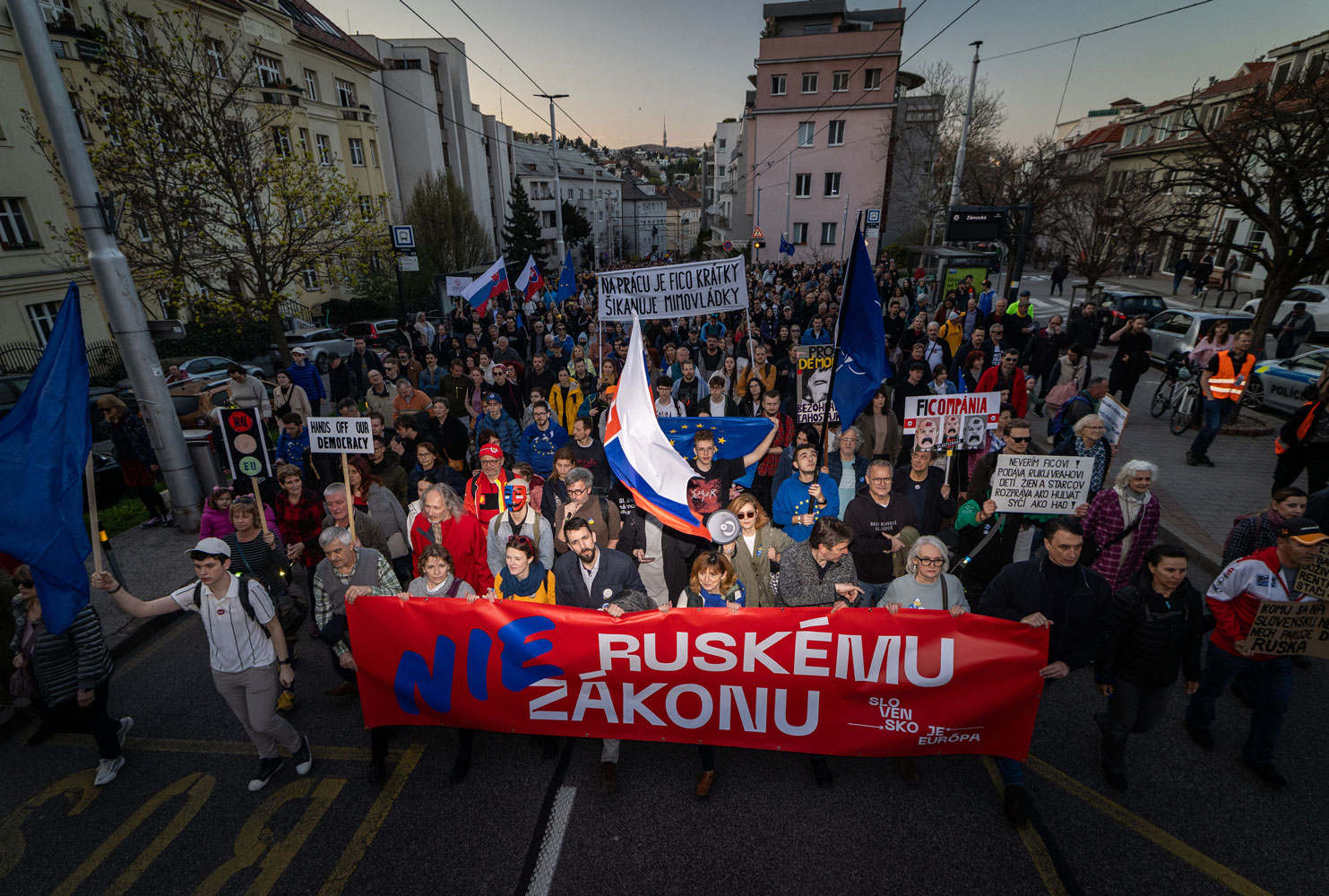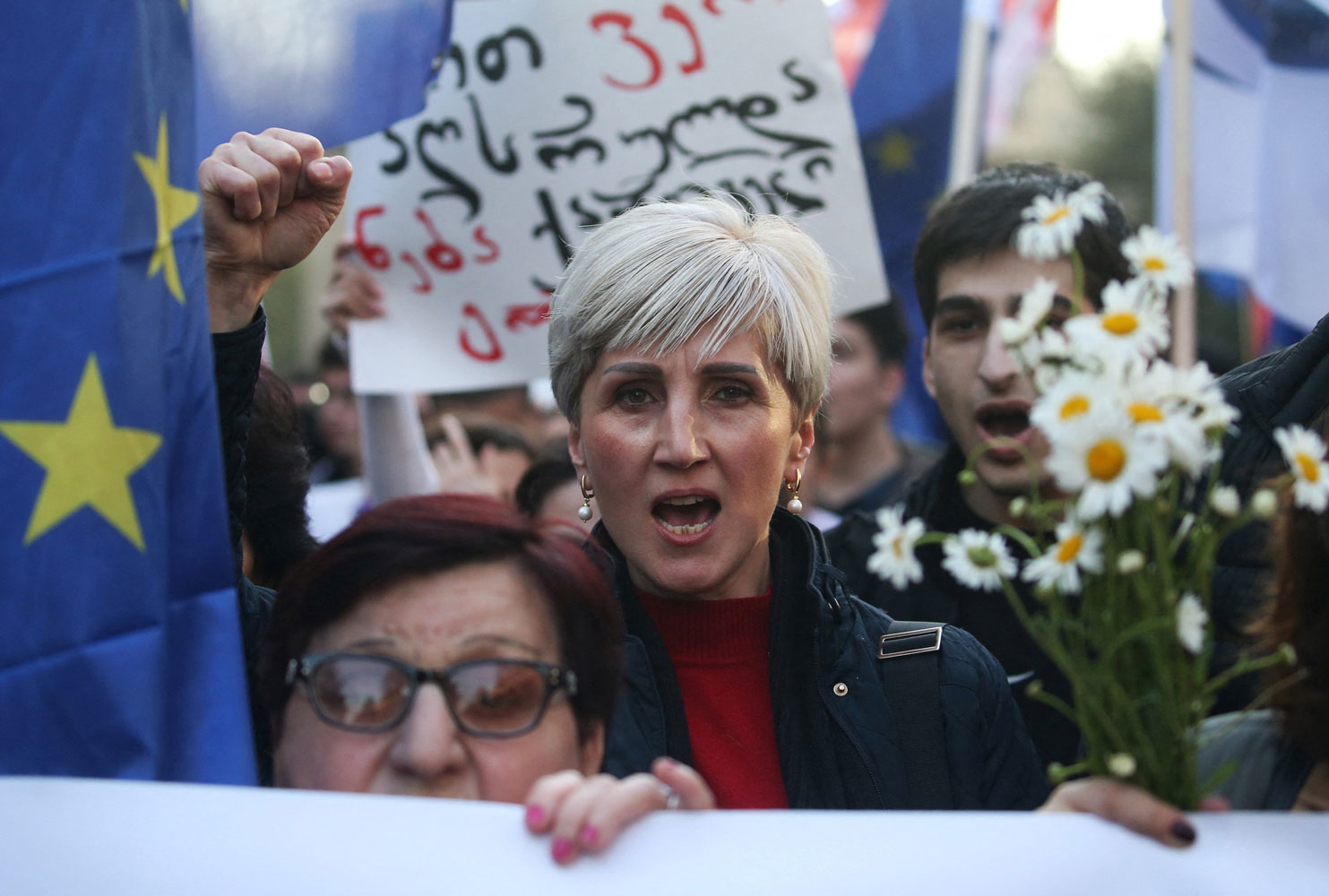Table of Contents
- Cutting civil society’s lifeline
- SUMMARY +
- INTRODUCTION +
- HISTORICAL ORIGINS The USA’s 1938 Act +
- 2004-2009 Early steps in Ethiopia and Zimbabwe +
- 2012 Russia sets the template +
- 2014-2018 Russia’s copycats +
- 2020-2022 Asia and the Americas +
- 2022-2024 Central Asia and the Caucasus +
- 2024-2025 Foreign agents laws go global +
- Trends and prospects +
- Recommendations +
- Download Report +
Trends and prospects
Foreign agent laws are part of a broader set of restrictive legislation through which numerous governments seek to apply a veneer of legality to their repression of dissent. Around the world, as part of an accelerating trend of democratic regression and autocratic shift, authoritarian political leaders are capitalising on legitimate concerns about foreign interference and money laundering to create legal tools that serve repressive agendas. This pattern has accelerated significantly since 2020, in part because governments assumed more powers during the COVID-19 pandemic and are reluctant to relinquish them.
Dozens of countries now have some form of foreign agents law. Many closely follow Russia’s model, while others are pitched as generic transparency, anti-money laundering and anti-interference measures.

Photo by Tomas Benedikovic/AFP
THE EU’S DRAFT ‘FOREIGN AGENTS’ DIRECTIVE: A TROUBLING RISK
Having long criticised the adoption of foreign agents laws, in December 2023 the EU proposed its own version, the Directive on Transparency of Interest Representation.
The initiative was introduced as a response to genuine concerns: the EU and its member states have repeatedly been subjected to interference attempts, including alleged Qatari efforts to buy influence in the European Parliament and persistent Russian campaigns to sway European voters ahead of key elections. Against that backdrop, the European Commission framed its move as part of an initiative to strengthen transparency and defend European democracy.
Civil society warned that the draft’s definitions were too broad and vague, creating space for overreach once transposed into national law. Civil society groups pointed out it would hand repressive leaders a new tool to stigmatise and restrict CSOs and independent media that receive even modest levels of non-EU funding.
The proposal also undermined the EU’s credibility. For years the EU had rightly denounced Russian-style foreign agents laws as authoritarian tools designed to restrict civil society. As EU institutions criticised Georgia’s law, Georgian politicians pointed to the EU’s proposal to deflect criticism, even though the two were quite distinct. Fortunately, civil society’s reaction led to the proposal being shelved.
The foreign agents laws passed or proposed in different countries have many common features. They tend to employ broad and ambiguous definitions of what constitutes foreign influence and political activity, giving governments wide discretion to target organisations they deem undesirable. The foreign agents terminology is purposefully pejorative and often brings connotations of espionage, designed to discredit and isolate organisations, with stigmatisation often amplified through state-controlled media channels.
Civil society overwhelmingly rejects the transparency justification for these laws as fundamentally disingenuous. CSOs that receive international support are already subject to rigorous transparency requirements because donors impose demanding accountability conditions as a prerequisite for funding. CSOs point to their stringent reporting standards and contrast these with governments that also receive foreign support yet face no equivalent disclosure obligations, making clear that the true aim of foreign agents laws is not increasing transparency or protection from foreign interference but restriction and control.
Foreign agents laws create systematic barriers to civil society operations. Complex registration processes, demanding reporting requirements and frequent audits force many smaller organisations to close. By restricting foreign funding, governments make CSOs dependent on state approval or often limited domestic funding sources, yet foreign agents laws are never accompanied by measures to expand or improve the domestic funding environment. The threat of harsh penalties, including heavy fines, licence revocations and imprisonment for noncompliance, creates a chilling effect that frequently leads to self-censorship and organisational dissolution.
Fortunately, not all proposed foreign agent laws have succeeded. Vigorous civil society resistance and legal challenges have sometimes stalled or rolled back these measures. The Georgian protests of 2023 provided the most dramatic example, showing that sustained mass mobilisation can force governments to retreat, if sometimes only temporarily. While the government’s ultimate passage of a renamed version of the bill in defiance of even larger protests in 2024 points to the limits of popular resistance, Ukraine’s rapid reversal of its 2014 foreign agents law shows that immediate and overwhelming resistance can succeed when the political moment is right.
Combined with domestic advocacy, international legal pressure has sometimes proven effective. This was seen in Hungary, when the European Court of Justice forced the government to repeal its 2017 law. The court’s ruling against Hungary established important precedents about the relationship between funding access and freedom of association. The 2022 ruling by the European Court of Human Rights that Russia’s foreign agents law violated the rights to freedom of assembly, association and expression also set a vital precedent. Legal judgments, however, have not prevented authoritarian governments adapting their strategies and implementing new versions of restrictive legislation.
Diplomatic pressure, sanctions and public condemnation from international bodies can sometimes deter or mitigate the impact of foreign agents laws, although effectiveness often depends on geopolitical considerations and the willingness of democratic states to prioritise human rights over other interests in their dealings with repressive states.
Civil society has also shown remarkable resilience in adapting to restrictive environments. In countries where foreign agents laws have taken effect, many CSOs have developed tactics such as operating informally, seeking alternative funding sources and forming international partnerships. However, even adaptive responses can bring costs in terms of CSOs’ capacity and energy to pursue their core missions.
As foreign agents laws proliferate globally, coordinated resistance is essential before these repressive tools become normalised. There’s an urgent need to mount a unified defence of civil society’s right to exist and operate freely. The alternative is to watch as independent voices are systematically silenced, paving the way to deeper authoritarianism.

Photo by Irakli Gedenidze/Reuters via Gallo Images